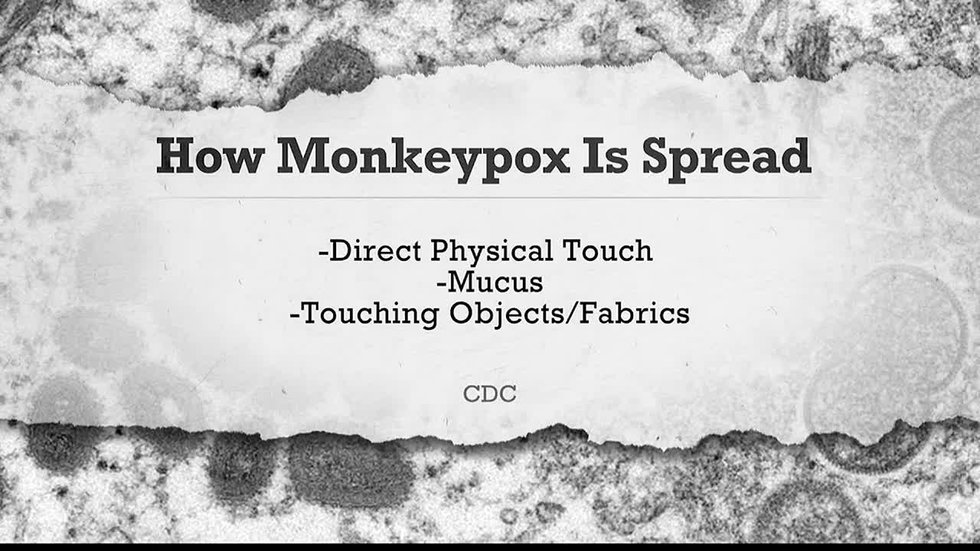[ad_1]
LAS VEGAS, Nev. (FOX5) – As cases rise across Southern Nevada and the Las Vegas Valley, doctors are working to inform community members about how Monkeypox really spreads, and how to minimize your risk.
According to the CDC, Monkeypox can be spread through sexual intimacy, touching, hugging, objects touched by an infected person, clothing items and bedsheets, as well as respiratory droplets. The broad range has led to plenty of confusion about how to prevent infection.
What scenarios put you at risk? Can strangers give it to you? What about the risks to children?
“Your risk is probably still fairly low in public places. You would have to have a very significant exposure to that person,” said Dr. Christina Madison, founder of The Public Health Pharmacist and Roseman University of Health Sciences, who has been working with The Huntridge Clinic to identify and treat cases.
“Right now, we are not identifying this infection as sexually transmitted, but more intimate contact,” Dr. Madison said. “You would have to be extremely close. A dinner date or being at a concert for more than a few hours, rubbing up against them,” she said.
Intimate contact or sexual contact, Dr. Madison said, is the most common scenario for the spread.
Other patients report infections after large gatherings, such as nightclubs, parties, raves, or music festivals.
“If you’re attending festivals, or outdoor events are places where there are a lot of people that are packed in tightly, and you see a lot of unexposed skin and you’re rubbing up against people, that’s potentially a risk,” she said.
Spread inside a household is also another common scenario, where people are in close quarters and can breathe respiratory droplets. Others can also be in contact with an infected person’s bedding, linens and even laundry. Children in the U.S. have been infected through household spread.
“If you are in a household with somebody who’s infected, that person should isolate until their lesions are completely healed,” she said.
What can people do to protect themselves? Preventative measures include hand-washing, being mindful of contact with strangers at large gatherings, and wearing clothing to cover extremities.
People who are eligible should get the vaccine as soon as they can, or keep away from higher-risk activities until they can get a vaccine to protect themselves and others, Dr. Madison said.
Children can be protected by making sure their vaccinations are up to date, and also making sure other adults in their household are taking proper precautions.
Copyright 2022 KVVU. All rights reserved.
[ad_2]
Source link



